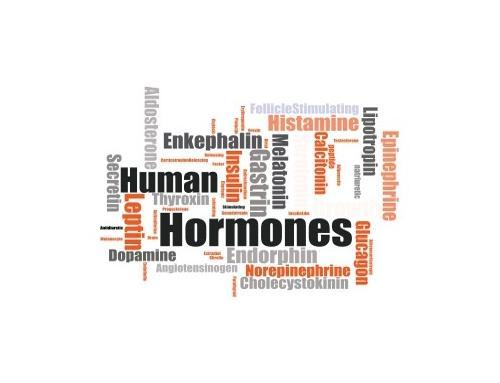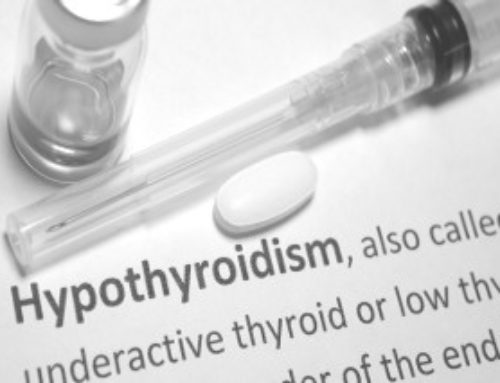 Vitamin D, the sunshine vitamin! The one we all know and love. What many don’t know is that our vitamin D needs cannot be met solely by sunlight, and that its benefits can also be gained from certain foods and dietary supplements. If you are looking to meet these needs through dietary choices, you might increase your intake of wild caught or canned fish, beef, egg yolks, dairy products like milk, cheese and yogurt, orange juice or oatmeal, among other choices. The daily dietary recommendation for vitamin D is 15 mcg, or 600 international units (IU).
Vitamin D, the sunshine vitamin! The one we all know and love. What many don’t know is that our vitamin D needs cannot be met solely by sunlight, and that its benefits can also be gained from certain foods and dietary supplements. If you are looking to meet these needs through dietary choices, you might increase your intake of wild caught or canned fish, beef, egg yolks, dairy products like milk, cheese and yogurt, orange juice or oatmeal, among other choices. The daily dietary recommendation for vitamin D is 15 mcg, or 600 international units (IU).
So what does vitamin D do?
Vitamin D is responsible for largely responsible for maintaining bone health, growth and remodeling, and is involved in cell growth processes along with immune functioning and reducing inflammation. With this knowledge, we know that a deficiency in the necessary amounts of vitamin D may lead to osteoporosis, and/or brittle bones. But how does a vitamin D deficiency affect our mental health? Most of us have knowledge of claims that sunlight (and vitamin D) makes us happier, so the purpose of this blog is to evaluate these claims with existing evidence.
Evidence certainly suggests a relationship between vitamin D deficiency and depression. Researchers have investigated this relationship in terms of severity of deficiency and effects of the supplementation of vitamin D in reducing depressive symptoms.8 While this phenomenon as a topic research is still relatively new, researchers tend to agree that it is worthy of consideration from a clinical standpoint. Depressed individuals with lifestyles, diets and/or geographical location that are not conducive to obtaining sufficient amounts of vitamin D may be particularly impacted.7 Vitamin D deficiency has been frequently noted in patients hospitalized with depression. Patients with a deficiency scored higher on the HADS-D scale, the BDI-II scale (on cognitive/affective symptoms), and on anhedonia factors than patients with sufficient levels of vitamin D.10
Further, several researchers have noted in general that depressive symptoms were more likely in individuals with inadequate vitamin D intake.1,2 Bertone-Johnson et al. found that women with a vitamin D intake of 400 IU of more were 20% less likely to be at risk for depressive symptoms than those who had a vitamin D intake of less than 100 IU.1 One study demonstrated that vitamin D deficiency was predicted by temporal associations of the seasons. That is, the findings of Kerr et al. suggest that clinically meaningful depressive symptoms were lower in Fall participants versus Winter and Spring participants and were explained by higher levels of vitamin D.3
Implications
As far as the effectiveness of vitamin D supplementation, research varies. Some researchers have found that supplementing with high doses of vitamin D was associated with improvement in BDI scores after 1 year of this regimen.2 One study has noted that vitamin D supplementation may increase favorable responses to standard antidepressant treatments, more specifically, this occurred when vitamin D was used to supplement an 8-week trial of fluoxetine.4 Another trial found that vitamin D supplementation was associated with improved mood in late-life depression.6 Combined findings have begun to show potential for a link between vitamin D supplementation and reduction in depressive symptoms in patients with significant levels of depression.9 It is noted that further randomized controlled trials are needed before claiming a causal link because research remains contradictory overall.5
The use of vitamin D supplementation as an alternative treatment has not been as extensively researched as some of the other alternative treatments that we have gone over thus far. That being said, with cooler weather approaching, it is worthwhile to be mindful of depressive symptoms with the changing season. If you feel a significant worsening of mood, motivation, or energy, the evidence discussed here suggests that increasing your daily dose of vitamin D could be helpful.
1. Bertone-Johnson, Elizabeth R, Powers, Sally I, Spangler, Leslie, Brunner, Robert L, Michael, Yvonne L, Larson, Joseph C, . . . Manson, Joann E. (2011). Vitamin D intake from foods and supplements and depressive symptoms in a diverse population of older women. The American Journal of Clinical Nutrition, 94(4), 1104-12.
2. Jorde, R., Sneve, M., Figenschau, Y., Svartberg, J., & Waterloo, K. (2008). Effects of vitamin D supplementation on symptoms of depression in overweight and obese subjects: Randomized double blind trial. Journal of Internal Medicine, 264(6), 599-609.
3. Kerr, Zava, Piper, Saturn, Frei, & Gombart. (2015). Associations between vitamin D levels and depressive symptoms in healthy young adult women. Psychiatry Research, 227(1), 46-51.
4. Khoraminya, N., Tehrani-Doost, M., Jazayeri, S., Hosseini, A., & Djazayery, A. (2013). Therapeutic effects of vitamin D as adjunctive therapy to fluoxetine in patients with major depressive disorder. Australian & New Zealand Journal of Psychiatry, 47(3), 271-275.
5. Kolarov, & Stoimenova. (2016). Does the supplementation of vitamin D affect depressive symptoms? European Psychiatry, 33, S414.
6. Okereke, & Singh. (2016). The role of vitamin D in the prevention of late-life depression. Journal of Affective Disorders, 198, 1-14.
7. Parker, G., & Brotchie, H. (2011). ‘D’ for depression: Any role for vitamin D? Acta Psychiatrica Scandinavica, 124(4), 243-249.
8. Parker, Brotchie, & Graham. (2017). Vitamin D and depression. Journal of Affective Disorders, 208, 56-61.
9. Shaffer, J. A., Edmondson, D. T., Wasson, L. W., Falzon, L., Homma, K., Ezeokoli, N., . . . Davidson, K. (2014). Vitamin D Supplementation for Depressive Symptoms: A Systematic Review and Meta-Analysis of Randomized Controlled Trials. Psychosomatic Medicine, 76(3), 190-196.
10. Von Kanel, R., Fardad, N., Steurer, N., Horak, N., Hindermann, E., Fischer, F., & Gessler, K. (2015). Vitamin D Deficiency and Depressive Symptomatology in Psychiatric Patients Hospitalized with a Current Depressive Episode: A Factor Analytic Study. 10(9), PLoS ONE, Sept 23, 2015, Vol.10(9).
by Callie Patterson
Callie Patterson is a graduate student pursuing a degree in psychological sciences at Northern Arizona University.
The content on this website is not intended to be a substitute for professional medical advice, diagnosis, or treatment. Always seek the advice of your physician or other qualified health provider with any questions you may have regarding a medical condition.





